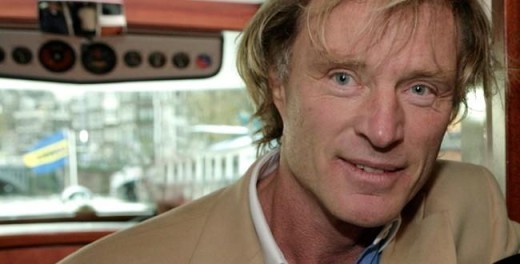
Dejima and Frederick Coyett’s role in the Nambu affair. In 1643, ten members of the crew of the Dutch merchant ship “Breskens,” including the skipper Hendrick Corneliszoon Schaep, were lured to shore by Japanese pirates, captured and transported to the Edo for ransom.
Six months later, Johan Elseracq helped with their release after promising that an Ambassadorial Envoy would officially apologize on behalf of the Republic and make the required financial arrangements with the Edo. This diplomatic incident became known as the so-called “Nambu affair.”
Council member of the VOC, Frederick Coyett, eager to please the Edo, interfered with such a formal apology. He traveled immediately after his arrival in Batavia, on November 4, 1647, to the Edo, but was not received, supposedly because he did not have the right papers, according to the Japanese.
On January 16, 1648, and this time loaded with gifts, Coyett returned to Nagasaki. As it turned out, the Shogun was still dismayed by the lack of an official, high-ranking Ambassador of the Dutch Republic.
In response, the Governor-General of the VOC, Cornelis van der Lijn, and his Deputy, Francois Caron came up with a diplomatic ploy.
The next year, 1649, they sent, “out of gratitude”, a deadly sick lawyer, the 50-year-old Peter Blok, together with boards for his coffin, as the “Ambassador, Special Envoy” of the Republic to Japan. Blok was certain to be dead upon arrival.
Caron had given clear instructions what to do when Blok died on the way. The new Ambassador would be posthumously promoted to “Doctor of Law” and immediately transported, pickled in salt in his coffin to the Edo. After all, the primary business of the Dutch trading company was the well-guarded trade secret of haring conservation for long distant sea voyages. In the 14th century, Willem Beukelz had invented the “ gutting of haring” or “haringkaken.” This conservation procedure left the pancreas in the haring, while removing all other guts before pickling it in salt. The pancreas helped in taste as well as the long-term conservation.
The Shogunate diplomatic elite noticed that the deceased Envoy, pickled in layers of salt as he was delivered in Nagasaki, carried no personal letter from the Prince of Orange, and therefore were still insulted but also very confused.
The Shogun concluded that this had to be the ‘ Death of a Salesman. ”
Dirck Snoucq, the new chief of Dejima, carried on the charade by claiming that the Envoy had traveled especially for the visit to Japan all the way from the Republic. The Shogun still did not trust it, but could not prove otherwise. Frederick Coyett’s position as Director of Dejima became untenable, and after that, he was promoted to Gouverneur of Formosa in 1656.
The Dutch VOC was able to maintain their exclusive trading monopoly with Japan till USA-Commander Mathew C. Perry sailed into Kobe Harbor on 13 February 1854, only half a year after initial diplomatic visit trying to sell arms. Rather than the full year as promised, and with ten ships and 1600 men, he pressured the Japanese to open up Japan for foreign trade.
After fierce protests by the Dutch, Perry was permitted to land at Kanagawa, near the site of present-day Yokohama on March 8, 1854, where, after negotiations lasting for around a month, the Convention of Kanagawa was signed on March 31, 1854. Perry signed as American Plenipotentiary minister, and Hayashi Akira, also known by his title of Daigaku-no-kami, signed for the Japanese side.
By Jacob Gelt Dekker
Opinion columnist for Curaçao Chronicle
Bron: CuraçaoChronicle

